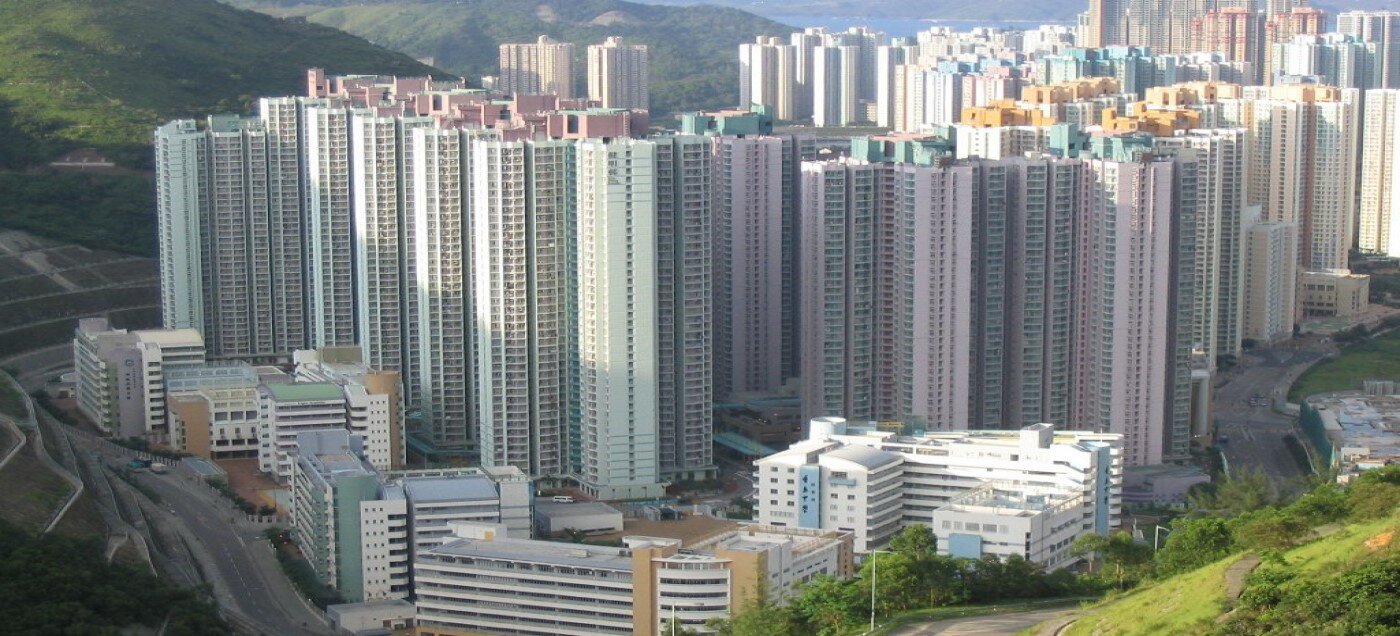Residential Real Estate News

10,000 Residential Properties Have Negative Equity in Hong Kong
Residential News » Hong Kong Edition | By Michael Gerrity | October 2, 2023 7:30 AM ET
According to JLL's latest Residential Market Monitor report, July 2023 recorded the most severe monthly decline in the overall price index this year, dropping by 1.1%. JLL anticipated that the home price growth year-to-date would be erased by the end of September. The residential mortgage loans in negative equity cases will likely exceed 10,000 by the end of this month.
The secondary transaction volume in the market reached its lowest point since January 2020. Based on the Rating and Valuation Department data, overall home prices as of the end of July were 2.6% higher compared to the previous year-end, but this increase is expected to be offset during the current month. HSBC and BOC recently raised the HIBOR-based mortgage rate cap by 50 bps to 4.125% and reduced cash rebate. With mounting funding cost pressure, other local banks may soon follow their lead. Meanwhile, the Fed did not rule out the possibility of rate hikes in the remainder of the year. Local banks may again be forced to raise the prime rate even higher, dampening home-buying sentiment further. Home prices will remain under pressure in the short run.

Norry Lee, Senior Director of Projects Strategy and Consultancy Department at JLL in Hong Kong, said: "While some may argue that the number of negative equity cases is not worrisome as long as borrowers meet their payments, the implications of negative equity--including the wealth effect and loss of potential liquidity from refinancing--will delay home upgrades and weaken investment confidence, potentially leading to a downward spiral,"
"The median monthly income of private housing households has declined over the years from its peak of HKD 40,800 in 2019 to HKD 36,500 in October 2020, only returning to HKD 40,000 in June 2023. Alongside the rapidly rising interest rates, many borrowers with existing mortgages would not be able to pass stress tests under prevailing circumstances. Buyers relying heavily on co-financing or developer's mortgage plans and entering the market during the bull market face larger mortgage payments, and falling valuations also make refinancing more challenging for them," he added.
Property investors are facing a particularly dire situation due to negative carry. The monthly mortgage interest payment has more than doubled in this rate hike cycle, while rent growth can hardly compensate for this increase. As of July 2023, the rental index for class A properties is still 9.0% below the end-2019 level. Now that non-first-time buyers, who bought over 8,000 properties between 2018 and 2020, are not bound by the Special Stamp Duty, they might be tempted to sell their assets for more promising alternative investments.

Cathie Chung, Senior Director of Research at JLL in Hong Kong, said: "The property market undoubtedly faces significant challenges. Meanwhile, the refund of Buyer's Stamp Duty (BSD) to non-local buyers upon becoming a permanent resident announced last year had little impact on facilitating non-local talents' access to the housing market. The number of transactions involving BSD in the first eight months of 2023 remained flat compared to the same period last year. We believe that delaying the payment of the BSD from the time of purchase to the time of sale could strengthen the housing market's stability while curbing speculative demand. Doing so could smooth the home price trend and moderate the chance for home price to search for a lower new trough, as non-local talents could enter the market more easily now rather than several years later, providing necessary support to the market."
Sign Up Free | The WPJ Weekly Newsletter
Relevant real estate news.
Actionable market intelligence.
Right to your inbox every week.
Real Estate Listings Showcase
Related News Stories
Residential Real Estate Headlines
- More Americans Opting for Renting Over Homeownership in 2024
- BLOCKTITLE Global Property Tokenization Platform Announced
- Small Investors Quietly Reshaping the U.S. Housing Market in Late 2024
- Greater Miami Overall Residential Sales Dip 9 Percent in November
- U.S. Home Sales Enjoy Largest Annual Increase in 3 Years Post Presidential Election
- U.S. Housing Industry Reacts to the Federal Reserve's Late 2024 Rate Cut
- U.S. Home Builders Express Optimism for 2025
- Older Americans More Likely to Buy Disaster-Prone Homes
- NAR's 10 Top U.S. Housing Markets for 2025 Revealed
- U.S. Mortgage Delinquencies Continue to Rise in September
- U.S. Mortgage Rates Tick Down in Early December
- Post Trump Election, U.S. Homebuyer Sentiment Hits 3-Year High in November
- Global Listings Aims to Become the Future 'Amazon of Real Estate' Shopping Platform
- Greater Las Vegas Home Sales Jump 15 Percent in November
- Ultra Luxury Home Sales Globally Experience Slowdown in Q3
- World Property Exchange Announces Development Plan
- Hong Kong Housing Market to Reach Equilibrium in Late 2025
- Construction Job Openings in U.S. Down 40 Percent Annually in October
- U.S. Mortgage Applications Increase in Late October
- World Property Markets, World Property Media to Commence Industry Joint-Venture Funding Rounds in 2025
- New Home Sales Hit 2 Year Low in America
- U.S. Pending Home Sales Increase for Third Consecutive Month in October
- Pandemic-led Residential Rent Boom is Now Fizzling in the U.S.
- Emerging Global Real Estate Streamer WPC TV Expands Video Programming Lineup
- 1 in 5 Renters in America Entire Paycheck Used to Pay Monthly Rent in 2024
- U.S. Home Sales Jump 3.4 Percent in October
- Home Buyers Negotiation Power Grows Amid Cooling U.S. Market
- Canadian Home Sales Surge in October, Reaching a Two-Year High
- Greater Orlando Area Home Sales Continue to Slide in October
- U.S. Mortgage Credit Availability Increased in October
- U.S. Mortgage Rates Remain Stubbornly High Post Election, Rate Cuts
- Construction Input Prices Continue to Rise in October
- BETTER MLS: A New Agent and Broker Owned National Listings Platform Announced
- Home Prices Rise in 87 Percent of U.S. Metros in Q3
- Caribbean Islands Enjoying a New Era of Luxury Property Developments
- The World's First 'Global Listings Service' Announced
- Agent Commission Rates Continue to Slip Post NAR Settlement
- Market Share of First Time Home Buyers Hit Historic Low in U.S.
- Greater Palm Beach Area Residential Sales Drop 20 Percent Annually in September
- Mortgage Applications in U.S. Dip in Late October





